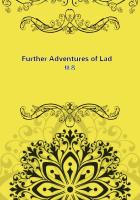For, according to this great saint, whom the popes and the Church have held to be a standard authority on this subject, God transforms the heart of man, by shedding abroad in it a heavenly sweetness, which surmounting the delights of the flesh, and inducing him to feel, on the one hand, his own mortality and nothingness, and to discover, on the other hand, the majesty and eternity of God, makes him conceive a distaste for the pleasures of sin which interpose between him and incorruptible happiness.Finding his chiefest joy in the God who charms him, his soul is drawn towards Him infallibly, but of its own accord, by a motion perfectly free, spontaneous, love-impelled; so that it would be its torment and punishment to be separated from Him.Not but that the person has always the power of forsaking his God, and that he may not actually forsake Him, provided he choose to do it.But how could he choose such a course, seeing that the will always inclines to that which is most agreeable to it, and that, in the case we now suppose, nothing can be more agreeable than the possession of that one good, which comprises in itself all other good things? "Quod enim (says St.Augustine) amplius nos delectat, secundum operemur necesse est- Our actions are necessarily determined by that which affords us the greatest pleasure." Such is the manner in which God regulates the free will of man without encroaching on its freedom, and in which the free will, which always may, but never will, resist His grace, turns to God with a movement as voluntary as it is irresistible, whensoever He is pleased to draw it to Himself by the sweet constraint of His efficacious inspirations.These, father, are the divine principles of St.Augustine and St.Thomas, according to which it is equally true that we have the power of resisting grace, contrary to Calvin's opinion, and that, nevertheless, to employ the language of Pope Clement VIII in his paper addressed to the Congregation de Auxiliis, "God forms within us the motion of our will, and effectually disposes of our hearts, by virtue of that empire which His supreme majesty has over the volitions of men, as well as over the other creatures under heaven, according to St.Augustine." On the same principle, it follows that we act of ourselves, and thus, in opposition to another error of Calvin, that we have merits which are truly and properly ours; and yet, as God is the first principle of our actions, and as, in the language of St.Paul, He "worketh in us that which is pleasing in his sight"; "our merits are the gifts of God," as the Council of Trent says.By means of this distinction we demolish the profane sentiment of Luther, condemned by that Council, namely, that "we co-operate in no way whatever towards our salvation any more than inanimate things"; and, by the same mode of reasoning, we overthrow the equally profane sentiment of the school of Molina, who will not allow that it is by the strength of divine grace that we are enabled to cooperate with it in the work of our salvation, and who thereby comes into hostile collision with that principle of faith established by St.Paul: "That it is God who worketh in us both to will and to do." In fine, in this way we reconcile all those passages of Scripture which seem quite inconsistent with each other such as the following: "Turn ye unto God"- "Turn thou us, and we shall be turned"- "Cast away iniquity from you"- "It is God who taketh away iniquity from His people"- "Bring forth works meet for repentance"-"Lord, thou hast wrought all our works in us"- "Make ye a new heart and a new spirit"- "A new spirit will I give you, and a new heart will I create within you," &c.The only way of reconciling these apparent contrarieties, which ascribe our good actions at one time to God and at another time to ourselves, is to keep in view the distinction, as stated by St.Augustine, that "our actions are ours in respect of the free will which produces them;but that they are also of God, in respect of His grace which enables our free will to produce them"; and that, as the same writer elsewhere remarks, "God enables us to do what is pleasing in his sight, by making us will to do even what we might have been unwilling to do." It thus appears, father, that your opponents are perfectly at one with the modern Thomists, for the Thomists hold with them both the power of resisting grace, and the infallibility of the effect of grace; of which latter doctrine they profess themselves the most strenuous advocates, if we may judge from a common maxim of their theology, which Alvarez, one of the leading men among them, repeats so often in his book, and expresses in the following terms (disp.
72, n.4): "When efficacious grace moves the free will, it infallibly consents;because the effect of grace is such, that, although the will has the power of withholding its consent, it nevertheless consents in effect." He corroborates this by a quotation from his master, St.Thomas: "The will of God cannot fail to be accomplished; and, accordingly, when it is his pleasure that a man should consent to the influence of grace, he consents infallibly, and even necessarily, not by an absolute necessity, but by a necessity of infallibility." In effecting this, divine grace does not trench upon "the power which man has to resist it, if he wishes to do so"; it merely prevents him from wishing to resist it.This has been acknowledged by your Father Petau, in the following passage (Book i, p.602):."The grace of Jesus Christ insures infallible perseverance in piety, though not by necessity;for a person may refuse to yield his consent to grace, if he be so inclined, as the council states; but that same grace provides that he shall never be so inclined." This, father, is the uniform doctrine of St.Augustine, of St.Prosper, of the fathers who followed them, of the councils, of St.















